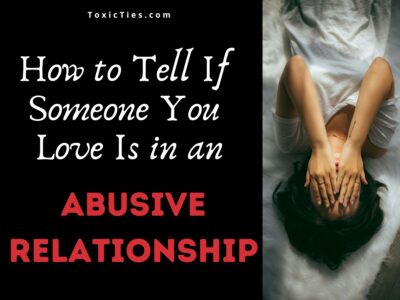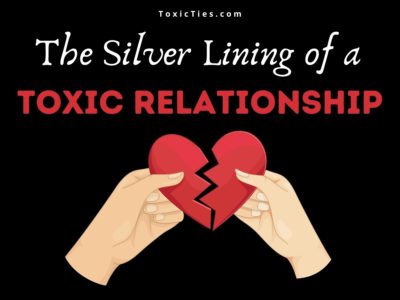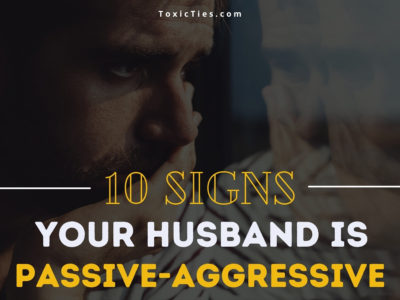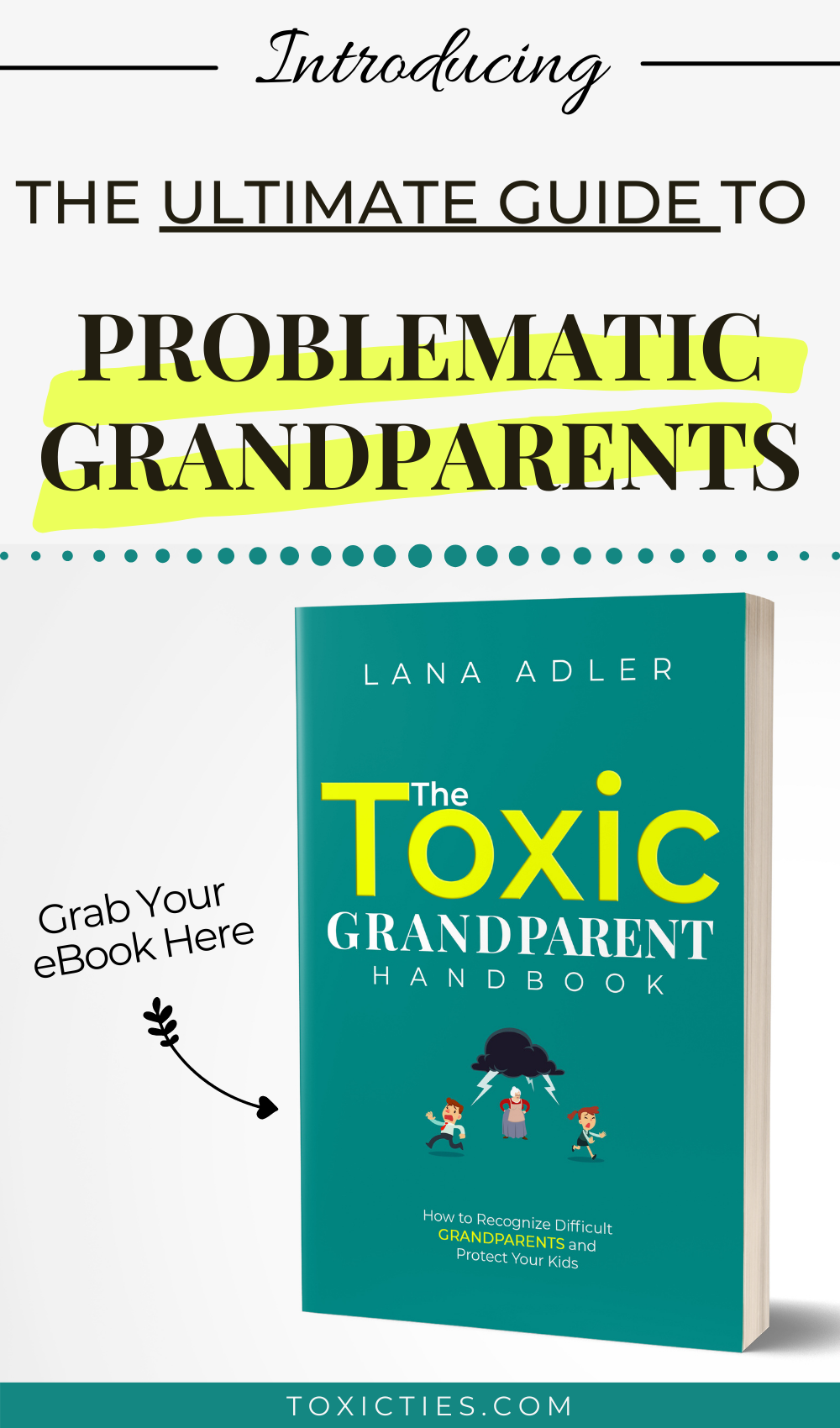On the surface, the signs of a toxic relationship are obvious and indisputable — like a black eye. But in most cases, the red flags are much more subtle and intertwined with emotions. This article explores the less obvious signs of a toxic relationship, and what to do if you find yourself in one.
Do you wonder if you’re in a toxic relationship?
Does your partner often use abusive and disrespectful language with you?
Do you feel like you give them everything and get nothing in return?
All of these red flags could be indicators that your relationship is in trouble. Or worse — that it’s too toxic and it needs to end.
However, every relationship goes through periods of trials and tribulations. How do you know the difference between a temporary setback and a trauma bond relationship that keeps you trapped in a vicious cycle?
Here’s how to tell if you or someone you care about might be in a toxic relationship, and what to do about it.

Signs You’re in a Toxic Relationship
No relationship is perfect, as we have established. Even the most perfect couples have internal struggles and moments when they doubt their choice of a partner.
However, these moments are usually fleeting.
A toxic relationship is a different story. Let’s look at some of the most glaring signs that tell you you’re in a toxic relationship.
1. Issues are never resolved
They’re just pushed under the rug, ignored, or dismissed.
In a good relationship, there is a healthy amount of conflict. After all, we’re talking about two unique, separate individuals. Differences in opinions, emotional expression, and communication style are inevitable.
But in a toxic relationship, one or both partners are conflict-averse. So they play the “everything’s fine” game and use passive-aggressive ways to punish their partner. As a result, issues are never resolved.
One common tactic people use to avoid issues is stonewalling. It involves a refusal to communicate when the discussion becomes too uncomfortable or overwhelming.
If your partner emotionally withdraws from a conversation and becomes unresponsive, distracted, tunes you out, and acts cold and indifferent, they are stonewalling.
2. You never have “good fights”
What is a good fight? Isn’t that an oxymoron?
A good fight is when both people feel free to express their differences and to disagree with one another. The discussion can get heated but in the end, both partners feel heard, and both acknowledge each other’s position.
If an apology is in order, both people apologize for their part in the conflict.
A good fight brings a sense of release and peace afterward. You feel validated, heard, and respected. And you feel closer to your partner.
In a toxic relationship, on the other hand, fights are never productive or satisfying. One or both partners engage in power struggles of “I’m right you’re wrong” and fail to validate each other’s feelings. It’s like talking to a deaf person.

3. Your partner never lets things go
Whether it’s a romantic relationship or a familial connection, it’s always a troubling sign when the past is never forgiven or forgotten.
Your partner may be unwilling or unable to let go. So no matter how much time had passed or how many times you’ve apologized, they remain unmoved.
Even if it seems like they’ve forgiven you, they’re still keeping the score to have an upper hand in the relationship. So they can use it against you next time you fight.
4. You feel emotionally drained
You may feel emotionally drained sometimes — like after a difficult conversation or a fight. But if spending time with your partner always results in feelings of exhaustion, it may be time to reexamine your relationship.
Perhaps, you’re the emotional caretaker in the relationship, so you spend much of your time fixing their problems or listening to them complain.
Or maybe they tend to pick fights and create drama out of thin air, so you feel like you have to walk on eggshells.
Either way, it’s a sign of a toxic relationship when your partner sucks the life out of you.

5. You feel like it’s always your fault
Your partner has a way of framing every situation in their favor. So you feel like you can’t do anything right and it’s always your fault.
Over time, this can erode your self-esteem and a sense of self-worth.
This behavior is typical of toxic people. They never take the blame because to them, it’s equivalent to losing face. They need to assume the position of power in a relationship at any cost.
If your partner tends to blame you for anything that goes wrong, they’re exhibiting toxic behavior and killing your relationship.
6. Your partner uses emotional coercion
Emotional coercion or blackmail refers to an attempt to manipulate using your emotions against you. People in dysfunctional trauma bond relationships often use emotionally abusive tactics to control their partners.
So whenever there is an issue, your partner might say: “I guess you don’t love me anymore” or “If I’m such a terrible person, why don’t you just leave?”
Maybe they even threaten to leave/divorce you if things don’t go their way.
Of course, we’ve all occasionally resorted to emotional blackmail, whether intentionally or not. But if your partner uses these tactics habitually, it’s a serious red flag.

7. Honesty is not the best policy
Some “white lies” are normal and even beneficial to a relationship.
Consider, for example, a scene from a wonderful film “Good Will Hunting,” where Robin Williams’ character reminisces about his deceased wife. He says that she used to pass gas in her sleep, and it was so loud, that she’d wake herself up. Then she’d ask: “Was that you?” And he’d always answer: “Yes, it was me.”
We all lie a little to spare our partner’s feelings, like: “No, you didn’t gain any weight” or “I love this gift.”
But when honesty has no place in your relationship, it’s alarming.
Perhaps, you feel like you can’t be yourself, so your authenticity is stifled. Or you have to “fudge the truth” all the time to keep your partner from blowing up. Or, perhaps, you’re afraid that they will use your honesty against you later.
All of these scenarios indicate that you’re in a toxic relationship.
8. You say “yes” when you want to say “no”
In a toxic relationship, the needs and desires of one partner are more important than the needs of the other partner.
So whenever you’re making a decision together, your partner is only considering what he or she wants, and how it will affect them. You may not be OK with it, but you’re going along because you want to avoid conflict.
It’s OK to put your partner’s needs above your own from time to time. It shows that you can be unselfish, and sacrifice your own comfort for others.
But with toxic partners, it’s what they always expect. The demands never stop, and you give away more and more of yourself every time you say “yes” when you mean to say “no.”
9. You’re leaning on substances a lot
Assuming that’s not your regular behavior, a toxic relationship may bring up some addiction issues in your personality.
Like many people who deal with stress, abuse, or trauma, you may be consuming alcohol, prescription meds, or illegal drugs at an alarming rate to help you get through the day.
I know I was. The relationship got so bad that every time my ex and I were together, it’d end in a fight. At some point, I started dreading seeing him but still wouldn’t break it off.
The anxiety was almost unbearable, so I tried to numb myself. I was also trying to recreate the beginning of the relationship when things were fun and easy, and going out to a bar together was a big part of it.
If you’re medicating yourself to take the edge off of being with someone, it’s a clear sign of a toxic relationship, or at the very least, your unhappiness.

10. You’re the worst version of yourself
When you’ve been in a toxic relationship for a while, you might start exhibiting the symptoms of toxicity.
It’s almost as if your partner brings up the worst side of you.
On the one hand, you may be feeling depressed, anxious, emotionally unstable, weak, worthless, unsure of yourself and your decisions, and helpless to change anything.
On the other hand, you’ll feel as if your partner’s ways are rubbing off on you and you’re becoming this snarky, angry, irritable, miserable person, and you don’t know how to stop.
In other words, you’ve lost yourself in the murky waters of a toxic relationship.

11. You don’t know what to expect
If you’re in a toxic relationship, your partner may be loving one minute, and vicious the next. You can’t predict when or why they will flip the switch.
The most innocent thing can set them off. Other times, they’ll show you a sudden sweetness or surprise you with a big display of affection.
This type of cycle is the foundation for a trauma bond relationship, where a person goes through an emotional rollercoaster of devastating lows and ecstatic highs which forms an addiction to an abusive partner.
12. You don’t trust yourself
If you have a hard time trusting your perception and recollections, your partner may be gaslighting you.
Gaslighting in an intimate relationship is when an abusive partner warps the reality in their favor in order to destroy the victim’s confidence and attain control over his or her feelings, thoughts, and behavior.
Of course, no two people are alike, and it’s natural to have differences in perception.
That’s why gaslighting is difficult to detect and even more difficult to prove.
However, what you must understand is that gaslighting is selfish and self-serving. So if you’re not sure, look at all the times your partner has made you doubt your reality.
- Was there some sort of benefit to them?
- Did it put them in a positive light?
- Did it allow them to evade accountability?
If the answer is “yes,” you may be in a toxic relationship with a gaslighting partner.
13. You can’t break it off
A truly toxic relationship has an addictive quality. It’s intoxication with someone who hurts you, and the way they hurt you is very much a part of the attraction.
You want to end it but you also have a deep, primal craving for your partner that keeps bringing you back together.
The dichotomy created that classic eternal struggle between the head and the heart. Your head that tells you they’re bad for you, and your heart tells you that you love them. Of course, “love” is not the exact term for what you feel.
So if you keep breaking up and getting back together, it could be a sign of a toxic relationship.
This is all a part of the cycle that keeps you tethered to an abusive person or someone who’s simply not a good match for you.

What to do if you’re in a toxic relationship
If you found yourself in a toxic relationship, first and foremost, it’s time for some self-reflection.
Is this the first time or is it a repeating pattern with you?
In other words, are you (on some level) choosing abusive partners or seeking the thrill of a toxic relationship?
The toughest part about realizing you’re in this type of relationship is accepting that to some degree, you consented to it.
It doesn’t mean that you are to blame for it. But taking accountability for some part of it is the first step to healing and taking your power back.
Once you understand what attracted you to your partner and how you’ve consented to the relationship, it will be easier to not only end this relationship but also steer clear of similar partners and relationships in the future.
The next step is actually getting out of a toxic relationship.
I’ve written about my experience of untying myself from a toxic boyfriend. For me, it happened naturally, through education and self-reflection. Once I started seeing him for who he really was, the spell was broken, and it became obvious that the relationship could not be salvaged.
But it could be different for you.
If you’re in the throes of a trauma bond relationship and the very thought of ending it induces a panic attack, you may need to work through these issues with a therapist.
And if your anxiety is stemming from a concern for your life or physical safety because your partner has threatened you, don’t hesitate to contact the local authorities and a domestic violence hotline at 1-800-799-7233 (check my Resources page for a full list of abuse and domestic violence resources).
Remember: threats of violence is a form of violence, and you are protected under the law, even if you’re not married.
Finally, from my personal experience, ending a toxic relationship is easier than keeping it that way. Because feelings are involved, you may be tempted to restart the relationship in hopes of things being different.
If you do decide to give it another try and it doesn’t work out, don’t judge yourself too harshly. Give yourself the time and the patience to go through the process of disentangling from your partner.
Breaking the spell of a toxic relationship may not be immediate. But the good news is, it is possible to learn your lessons, find yourself again, and move forward as a stronger, wiser person.
If anything, this experience prepared you to find a loving, healthy relationship in the future.
So don’t lose hope! And never lose faith and trust in yourself.
Final Thoughts
No relationship is perfect, and occasionally, we need to work on ourselves to be able to get through relationship challenges.
As a rule, most of us acquired unhealthy relationship patterns as part of growing up. An intimate relationship is an arena where we play out our childhood traumas and conditioning.
So when unhealthy or dysfunctional ways of coping or communication rear their ugly heads, it doesn’t necessarily mean that the relationship is toxic.
In fact, it is perfectly acceptable and even healing to explore your deepest vulnerabilities and personal struggles with your partner.
But if exposing these vulnerabilities gets you ridicule and rejection instead of understanding and support, you may be in a toxic relationship.
Breaking a toxic bond is never simple. But with courage and patience (and a little self-forgiveness!) you can navigate this process of coming back to yourself after a toxic relationship.
References
Carruthers, A. (2013). Freedom from Toxic Relationships. Tarcher/Penguin.
Ducharme, J. (2018). How To Tell If You’re In a Toxic Relationship — And What To Do About It. Retrieved from TIME.

NEXT
Toxic Online Daters: 11 Types You Need to Avoid Like the Plague
13 Signs That You’re Dating Mr. Big (And Why You Should Dump Him)








hi,I am going thru this.It was toxic at all I was beaten ,slapped .It affected me emotionally,physically.I left my carrier for my marriage but I had no value in the relationship.I t was only give.He always told me that you have to be my slave because this is the definition of wife. I never got transparency in relation.Everything was hidden from me. And transparency was only from my side.I even left my friends because of him,as he used my friends contact to chat with them. I have 1 daughter and same thing with her too .no love for her.It was 6 years been in this relation.Now I have decided to come out of it.I don’t know how the the future is even my 2 year old daughter’s future is in my hands .Don’t know am I taking right decision or not. I only want strength at this moment.
Hi xyz,
it takes great strength and bravery to leave an abusive relationship. You did that. You already possess the strength you wish for! It won’t be easy but you can do it. You have your little one to take care of. She deserves a life free of abuse. And so do you!
The future may seem uncertain now but 5,10,15 years from now you’ll look back at this time and feel that you absolutely did the right thing. I’m sure of it!
Blessings,
Lana